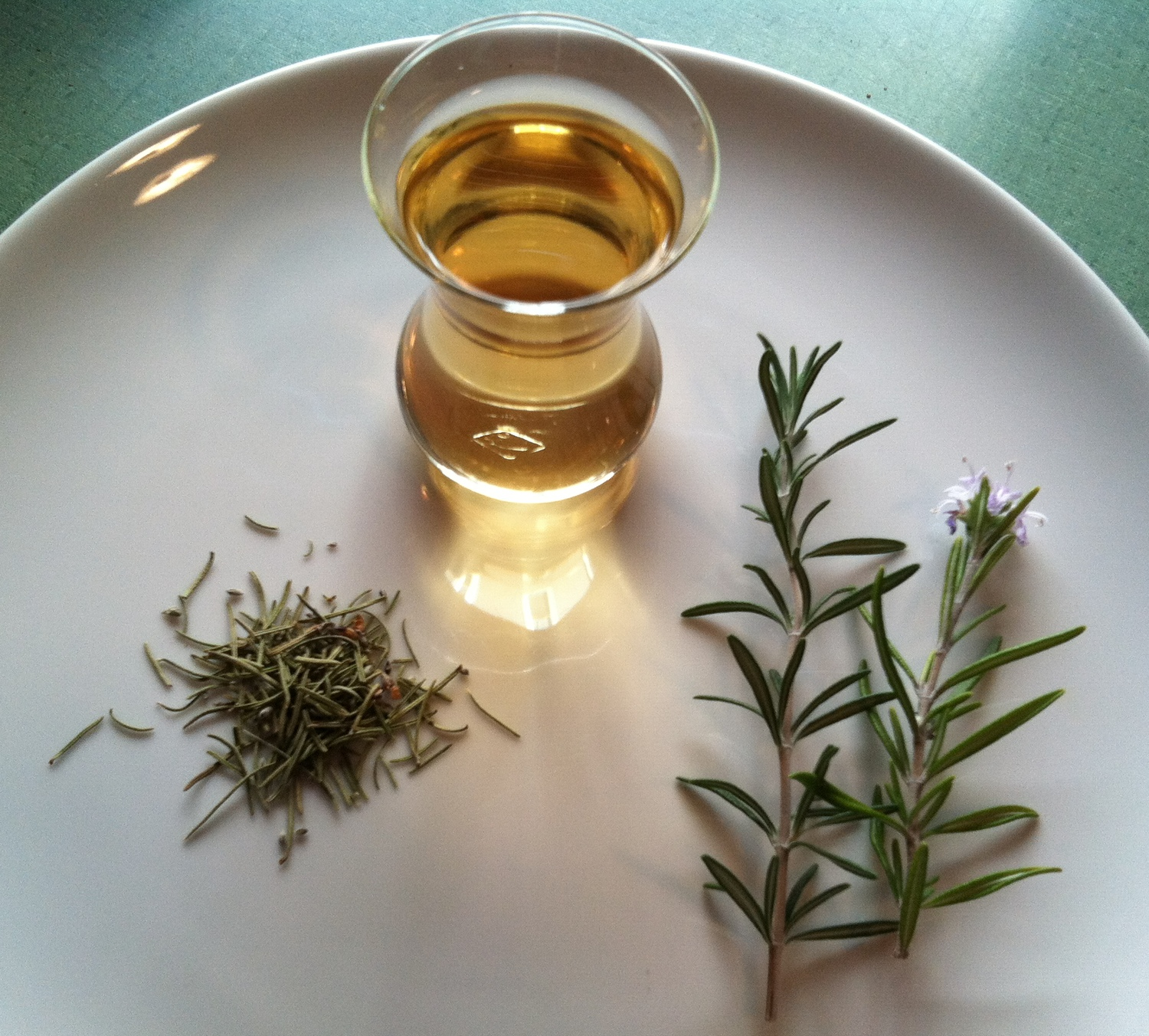Remembering Rosemary
By Steph Zabel
Herbalist, Ethnobotanist and Educator
Throughout the whole summer my potted rosemary plants soak up the warm sun, and when the days start to grow cold, I bring them indoors to make it through the winter. The sight of their dark, resinous leaves cheers me and often I’ll wind their stems into holiday wreaths. In the absence of pine or fir boughs, rosemary is a beautiful and fragrant alternative.
Like last month’s cardamom, rosemary (Rosmarinus officinalis) is another herb that tends to be more common on the dinner plate than in the medicine cabinet. Certainly it is delicious added to potatoes or roasted meats, and its use is famous in the kitchen due to its excellent digestive properties. However, beyond its practical culinary uses, there’s more to rosemary than its pungent aroma and unique flavor…
This little herb can help to break down fatty foods, increase the metabolism, and also support the liver. So it goes without saying that rosemary is a plant we could all benefit from during the food-laden holiday season. It also has a marked warming and stimulating effect, and over time it can even improve circulation throughout the whole body. This makes it a wonderful herb for people who tend to have cold extremities and need some circulatory support (especially in New England winters.)
I also find it useful for feelings of lethargy – try a cup of hot rosemary tea when you feel tired and sluggish.
Rosemary has a very special affinity for the head. I use it – and recommend it – as an infusion for headaches, especially for people who are prone to headaches caused by stress. Even just smelling rosemary essential oil may help ease the ache.
Folklore states that it will also support and increase hair growth. Add a few drops of rosemary essential oil to olive oil and rub on the scalp, or do an old-fashioned hair rinse with rosemary tea. The stimulating property of rosemary is said to re-invigorate hair follicles so that new growth occurs. Even modern day hair treatments continue to use rosemary extract as an ingredient.
Rosemary can increase cognitive function when used over time and has attracted clinical interest as a preventative to Alzheimer’s disease. This could be in part due to its high antioxidant content. Rosemary supports brain function, helps us retain information, and stimulates memories. Often when I study or am hunkered down doing intense work, I will keep a bottle of rosemary essential oil nearby to smell at intervals. Indeed, for ages rosemary has been a reoccurring symbol of remembrance. Can you recall Ophelia’s line in Hamlet?... “There’s rosemary, that’s for remembrance. Pray you, love, remember.”
During this holiday season, may we all remember this wonderful herb’s invigorating properties that support our digestion, boost our circulation and stimulate our mind!
INVIGORATING TEA BLEND
For an energizing pick-me-up, mix together equal parts of:
Rosemary
Spearmint
Holy Basil
Steep 1 Tblsp. of this blend per mug of hot water for at least 10 minutes. Strain and sip, adding honey if desired.
ROSEMARY INFUSED OLIVE OIL
For this recipe it is important to use dried rosemary rather than fresh. Since fresh herbs contain water there is a much greater change of the oil spoiling. To avoid any mold and unpleasant results, please use only dried rosemary for this recipe!
Place 3-5 tablespoons of dried rosemary leaves in an 8 oz. glass jar. Cover with organic olive oil, filling the jar to the top. Stir, cover and label your jar with the date and ingredients. Shake daily, letting the herbs infuse in the oil for at least 2 weeks. When it has reached the desired flavor, strain out the rosemary and store in clean, tightly capped glass bottles.
Use this oil on roasted vegetables, for dipping bread, on salads, or pasta. Poured into a pretty bottle it makes a lovely holiday gift!
Steph Zabel is an herbalist and educator based in Somerville, MA who helps urban dwellers connect with the plant world. She teaches herbal classes, is available for individual consultations, and is also the founder of HERBSTALK, a community herbal conference. Learn more about her work at: www.flowerfolkherbs.com and www.herbstalk.org.
References:
http://umm.edu/health/medical/altmed/herb/rosemary
http://www.botanical.com/botanical/mgmh/r/rosema17.html
http://www.ncbi.nlm.nih.gov/pubmed/20377818
Wood, Matthew: The Earthwise Herbal
Chevallier A. The Encyclopedia of Medicinal Plants . New York, NY: DK Publishing, 1996.



